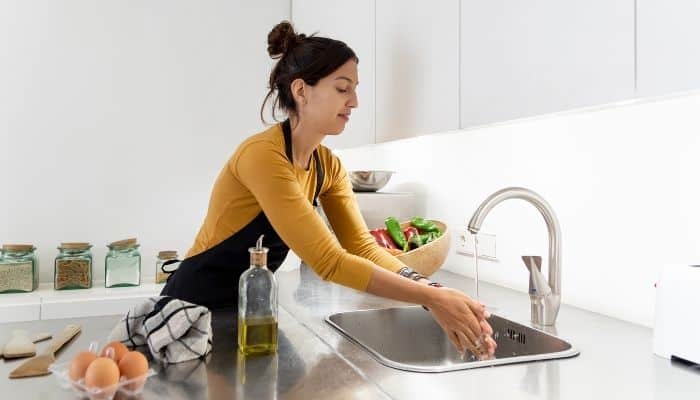Did you know that one in six Americans experiences food poisoning every year? Foodborne diseases, commonly known as food poisoning, happen when you eat foods contaminated by infectious organisms such as bacteria, parasites, or viruses.
People who have a weak immune system are much more prone to foodborne diseases. If you are one of them, here are some tips on how to avoid getting food poisoning.
Wash Your Hands
Nothing beats washing your hands thoroughly to eliminate bacteria buildup on them. Before you touch the food, make sure that your hands are germ-free. After you eat, rewash your hands.
If you are preparing the food, wash your hands with warm, soapy water before touching any vegetables or meat. Lastly, it is best to stay away from raw foods if you’re sick or have a skin infection.
Keep Your Kitchen Clean
Sometimes, a dirty kitchen is the main culprit in food poisoning. This is the most common reason people experience food poisoning after going to restaurants or fast-food chains. You’ll know it’s too late if you experience diarrhea, vomiting, and a high fever, as they are all common symptoms of food poisoning. If you experience these symptoms, knowing what to do after getting food poisoning at a restaurant will help speed up the recovery process.
Always make sure that the food you eat comes from a clean kitchen. Keep the utensils and kitchen surfaces clean if you cook food at home. Use hot water to disinfect kitchen utensils, hand towels, dishcloths, tea towels, and aprons.
Cook Foods Thoroughly
If you ask professionals for some tips on how to avoid getting food poisoning, most of them will emphasize the importance of cooking your food thoroughly. As you cook food thoroughly at a high temperature, you kill harmful bacteria in your raw foods.
You should always cook red meat, eggs, and shellfish all the way through. They are the most common foods that cause food poisoning, so be careful with them. The recommendation is to cook foods at a temperature of at least 162°F for two minutes to kill harmful bacteria.
Check for Expiration Dates
Always follow the expiration dates written on the packaging. If the grocery item you bought a few days ago has passed its expiration date, it is best to throw it away. Make checking for expiration dates a habit, especially when it comes to dairy, meat, and poultry products.
Avoid foods with a foul smell and a broken seal when shopping at the grocery store. If it’s canned food, do not buy bulging cans because that is a sign of bacterial contamination.
When you think you’ve eaten contaminated food and your symptoms are severe, consult a doctor to receive a proper diagnosis and treatment. Remember that prevention is better than cure, so keep in mind the tips mentioned above to avoid food poisoning incidents in the future.







